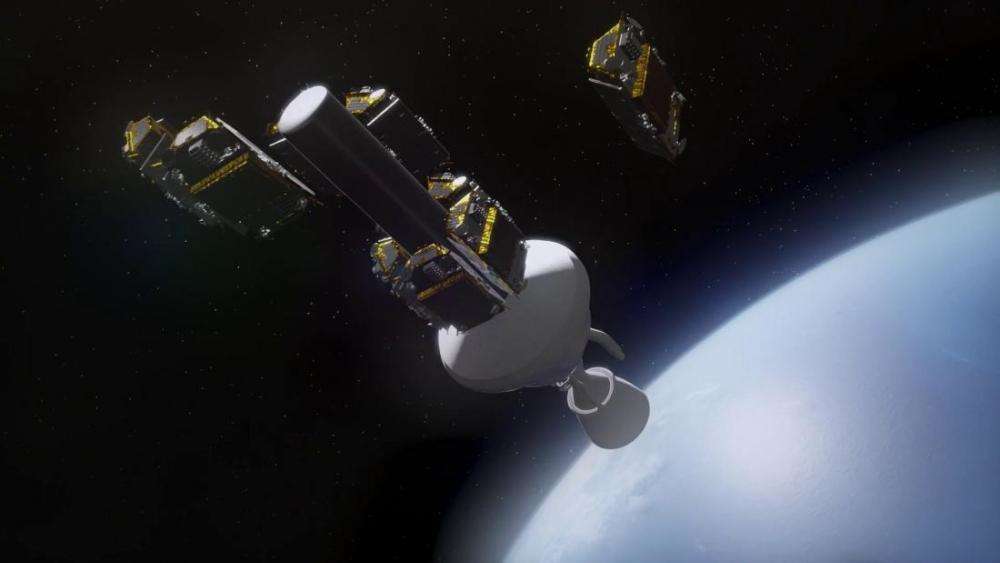Aireon has announced the successful deployment of a fifth batch of 10 ADS-B payloads, hosted by the Iridium NEXT satellite constellation, bringing the total number of Aireon payloads in orbit to 50.
Aireon has announced the fifth successful launch and deployment of its space-based Automatic Dependent Surveillance-Broadcast (ADS-B) payloads, hosted by the Iridium NEXT satellite constellation. At 7:13:51 AM PDT (14:13:51 UTC) on 30th March, a SpaceX Falcon 9 rocket lifted off from Vandenberg Air Force Base in California, carrying 10 Iridium NEXT satellites, bringing the total number of Aireon payloads in orbit to 50.
According to Aireon, when the newly launched payloads come online, the system will have nearly global coverage with 15-minute or better update intervals. This will allow airlines to begin beta testing the capabilities of space-based ADS-B in line with ICAO and EASA regulations that require aircraft to be equipped with an aircraft tracking system for those flights not tracked by air traffic control by the end of 2018.
Aireon has teamed with FlightAware to create GlobalBeacon, which combines FlightAware’s data processing platform and web-interface with Aireon’s space-based ADS-B data, for a cost-effective solution to help meet the ICAO Global Aeronautical Distress Safety System (GADSS) standards.
In addition to GlobalBeacon, FlightAware is delivering the data through services that are already commonly used by airlines and industry leading service providers such as SITAONAIR.
The Aireon system is hosted on the Iridium NEXT satellite constellation, which will consist of 66 low-earth orbit cross-linked satellites. A total of 81 Iridium NEXT satellites are being built, all of which will have the Aireon payload onboard. Currently, 75 satellites are planned to be deployed with nine serving as on-orbit spares and the remaining six as ground spares. The constellation is planned for completion in 2018.
Thales Alenia Space is the system prime contractor for the Iridium NEXT programme, with responsibility for engineering, integration, and in-orbit validation, in addition to the definition and validation of the overall system. The satellites are manufactured in production line process by Thales Alenia Space’s subcontractor Orbital ATK, at its Satellite Manufacturing Facility in Gilbert, Ariz. under the supervision of a dedicated local Thales Alenia Space team.
Launch and Early Operations (LEOP) and In Orbit Tests are performed by Thales Alenia Space from Iridium’s Satellite Network Operation Center (SNOC) in Leesburg, Va.

